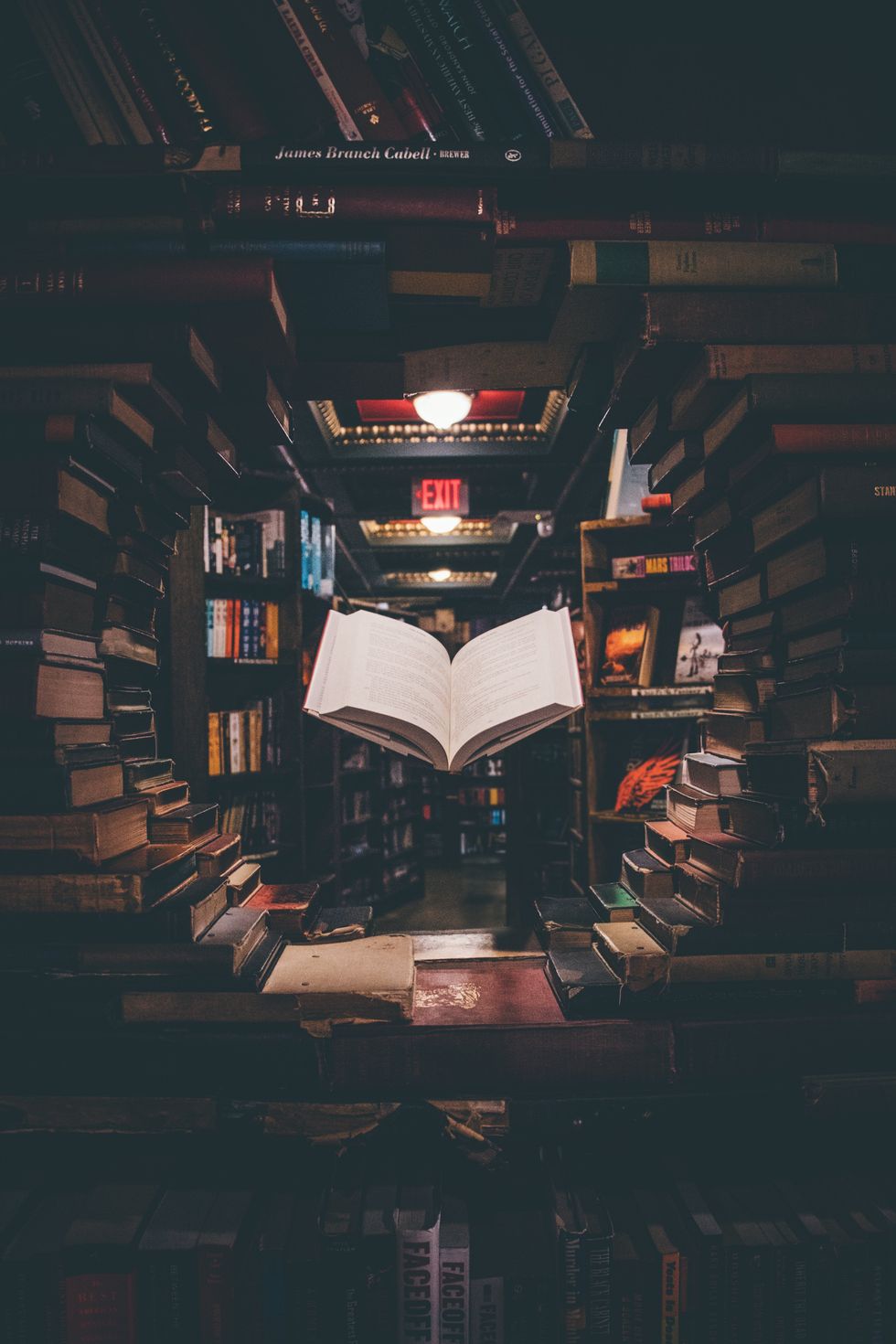The strangest thing in the world to me is that I am an English major who, for many years, read nothing but the books assigned to her in classes. When I was little, I practically swallowed books whole. My parents tell stories of how I'd come home from school, pick up whatever book I was reading at the moment, and lock myself in my room for the next three hours. In fifth grade, I was one of two students in my class who had read the entire Lord of the Rings trilogy, and I eagerly participated in the "Battle f the Books" competition with my friends. Reading was never a problem for me. So why did I stop?
I was still an avid reader in middle school, though my choice of fiction was usually of the YA variety, featuring witches and vampires and tragic (or maybe not so tragic) love stories. My friends and I were the nerdy kids in our classes, and we were generally known for being pretty into reading and writing. We passed around notebooks and wrote circle stories, and if one of us had read a particularly good book recently, the novel would quickly make its rounds through the entire friend group.
Now, I know that a lot of things get the blame for children reading less. We love to blame iPads, social media, and online games. Not all of that is untrue. I'd like to make the argument that, in my particular case, there were two key culprits—television and a poorly constructed method of teaching English in schools.
I mentioned that I still read in middle school, and I did. The fact is, kids, and especially the creative ones, need fictional stories to keep them going. I needed some kind of storytelling in my life, and I found it in books. Granted, I also found it in Harry Potter fanfiction, which I read an increasingly worrying amount of as I progressed through my early teen years. Eventually, however, the Tumblr phase ended, and I moved on to bigger, better, more socially acceptable things. I am, in fact, talking about television.
I have always needed some sort of fictional storytelling in my life, and television has provided that with ease and great comfort. Watching tv is a passive activity, as opposed to the active pastime of reading. It requires less work on my part, though I do find myself significantly more impassioned by the narratives I see on my screen than most of my friends. When I really think about it, television was the real game changer in my reading habits. I was so consumed by the stories I saw on tv; I had no time or energy to fit in stories from books.
I don't want to just blame technology, though, because I think the American education system also played a significant role in my decreased interest in reading. School makes reading boring; this is something the general populace seems to agree on. However, I'd like to argue that it isn't the "boring" nature of books like Dickens' Great Expectations or Emily Brontê's Wuthering Heights that teaches us to hate reading.
As an English major and appreciator of "required reading" books, I personally adore the works of Steinbeck, Twain, and Joyce, but I acknowledge that many high schoolers find them tedious and hard to get through. However, throughout my years of school, I noticed that it wasn't usually the books themselves that students had a problem with. The complaints poured in, but they generally regarded a hatred of the unnecessarily long time spent analyzing every little detail of a novel that students were otherwise not inclined to read.
Again, as an English major, I support lengthy analysis of "boring" books. Details matter, and I wish I could convince my classmates of this point. However, the real travesty of high school reading was, for me, how little reading there really was. I found myself reading books I didn't like for months, which made my general approach to reading one of boredom and annoyance. I was already so busy, why bother with the three or four chapters due this week? The real problem was, as I read each book chapter by chapter, I didn't pay attention to the story so much as I did to the details.
Now that I've moved on to college, I've been forcing pleasure reading back into my life. I know, it sounds counterintuitive. The thing is, I love books, but I have trouble starting them because I constantly feel as though I should be reading them for analysis. The reality is that, to really enjoy reading, I need to read for the whole story first. Analysis matters, but the reason that we read is first and foremost to satisfy our need for storytelling, and until I've achieved joy from the story itself, I will never find pleasure in reading.












